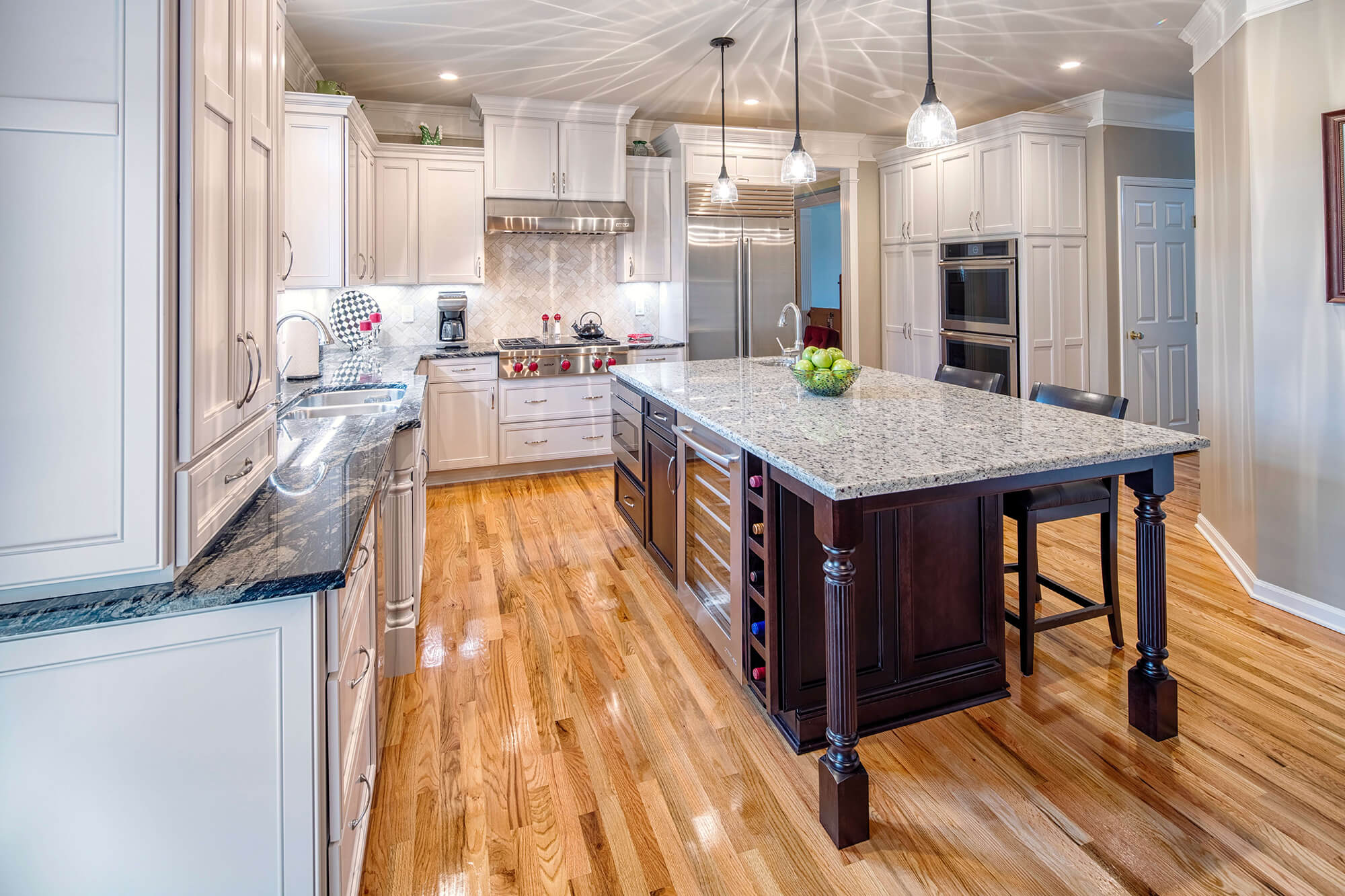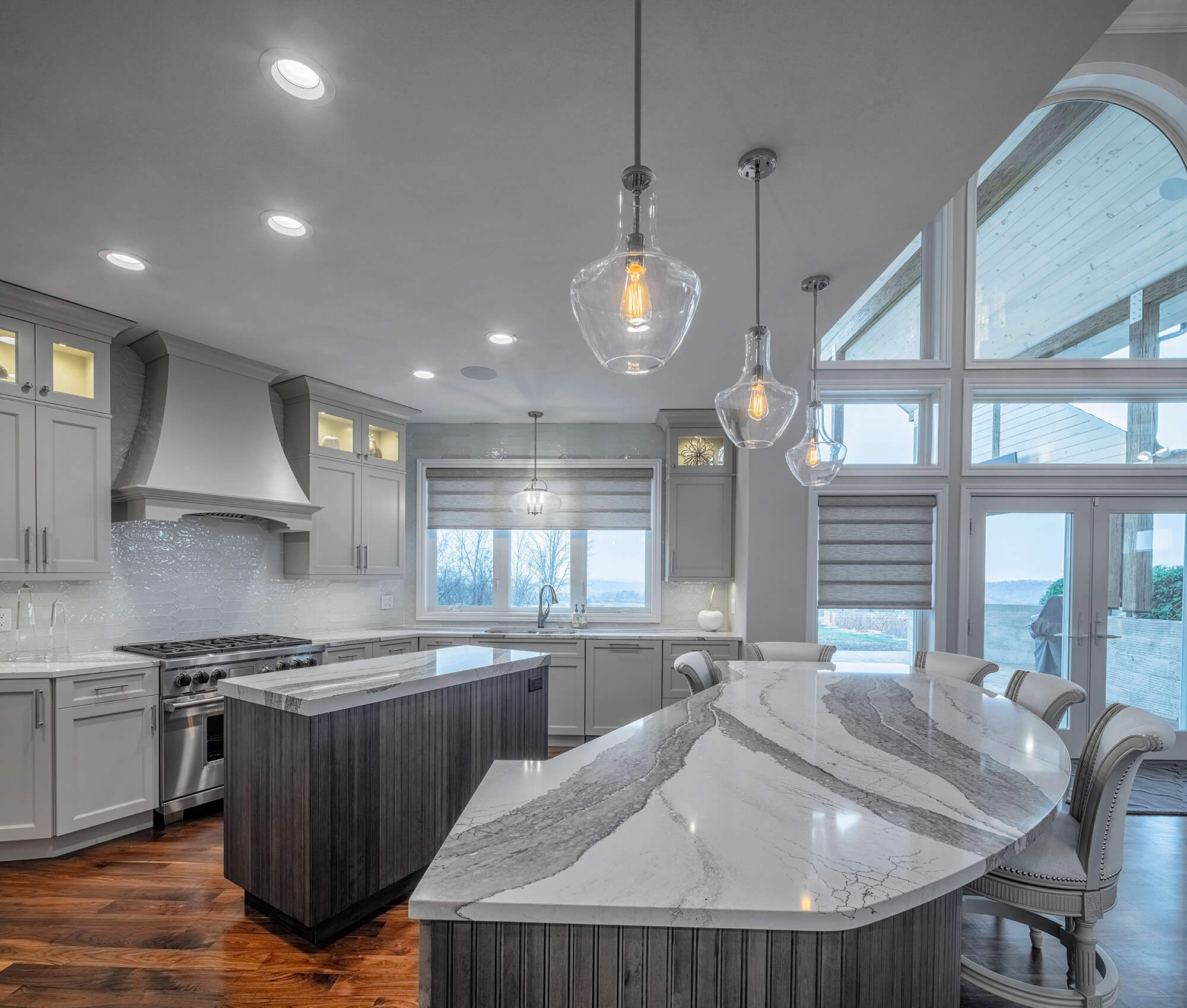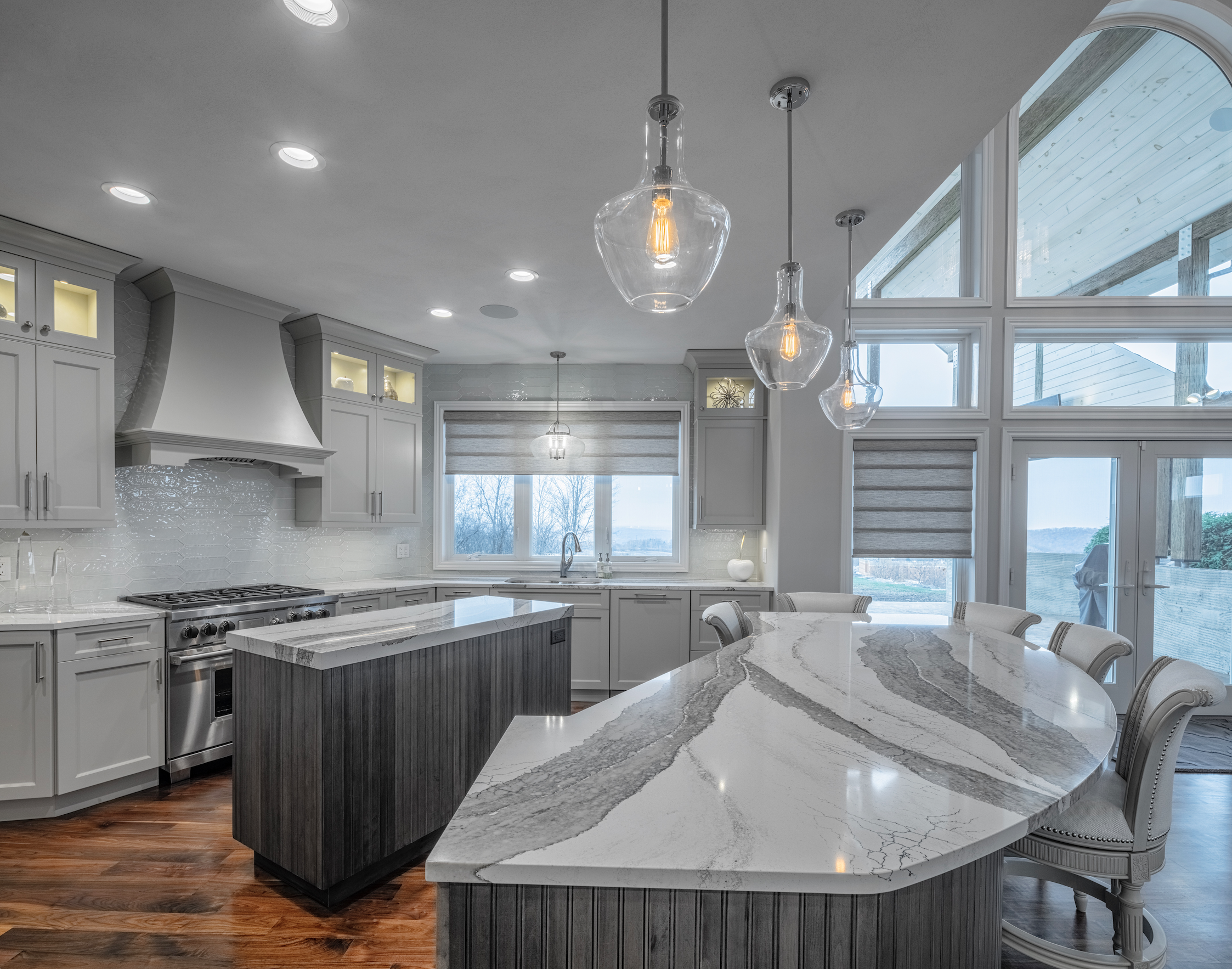When we meet with homeowners to discuss a kitchen or bathroom remodeling project, we are often asked our opinion about countertop options. Granite and quartz surfaces are always at the top of our list. Both are sleek, elegant, durable, and add significant value to your home; but they have some distinct differences. Here’s how they compare in terms of material, style, and maintenance:
Granite
Granite is 100% natural stone that is extracted from quarries, cut into slabs, and polished.

Advantages:
Because of the variety of interlacing minerals, granite offers a lot of visual depth. It offers a more earthy consistency with a variety of natural fissures, swirls, and crystalline structures.
Granite is available in a variety of colors, it’s water and scorch resistant, highly durable, and can be wiped clean easily with a mild soap solution. However, it’s important to note that granite needs to be sealed at the time of installation and once a year following.
Disadvantages:
Granite is typically a more expensive option compared to other countertop surfaces. Pricing is determined by the size, thickness, and color of the slab. The type of edging you choose for your granite countertop will also influence the price.
Granite is also vulnerable to staining. Oils and dark liquids like wine or juice will stain granite if left on the surface for any period of time. Most oil stains can be removed with a paste or poultice that draws the oil out of the surface. Placing hot pans or dishes directly on a granite countertop can also cause damage. If you ever damage your granite countertop, it is very costly to repair. Because of the uniqueness and variation of each slab, it cannot be patched to match the original surface.
Quartz
Quartz is real stone but is combined with resin and other manmade materials to reinforce its durability and performance.

Advantages:
Quartz is one of the most durable counter surfaces available. It is harder than granite, non-porous which helps to reduce bacteria growth on food prep surfaces, and is extremely easy maintain. Quartz countertops are scratch, scorch and mildew resistant and, depending on the quartz pattern, can have a seamless appearance.
Additionally, quartz, unlike granite, does not require sealing. To maintain your quartz countertops, simply use a mild soap or a stone-safe cleaner and wipe it down with a soft cloth or paper towel. Although quartz surfacing is designed to withstand a lot – it’s not indestructible. But if you ever damage your quartz surface, repairs are easier and more affordable compared to granite.
Quartz slabs cover a larger surface area than granite, which allows you to cover a larger countertop area with fewer slabs and less seams.
Manufacturers of quartz countertops have significantly enhanced the look of their products over the years. One of the most stunning products on the market is Cambria quartz. Cambria is manufactured in the United States and they offer a vast range of patterns and colors.
Disadvantages:
Quartz, like granite, is one of the more expensive counter surfaces. And although the surface is extremely durable, placing hot pans or dishes on quartz counters can still cause damage. And finally, seams are still evident although they can be better camouflaged.
Before choosing a countertop material, we always encourage our clients to see the surface in person first. Our showroom here in Marcellus offers a wide variety of both granite and quartz samples. When you’re ready to get started, reach out to our dedicated team of experts to schedule a consultation!



